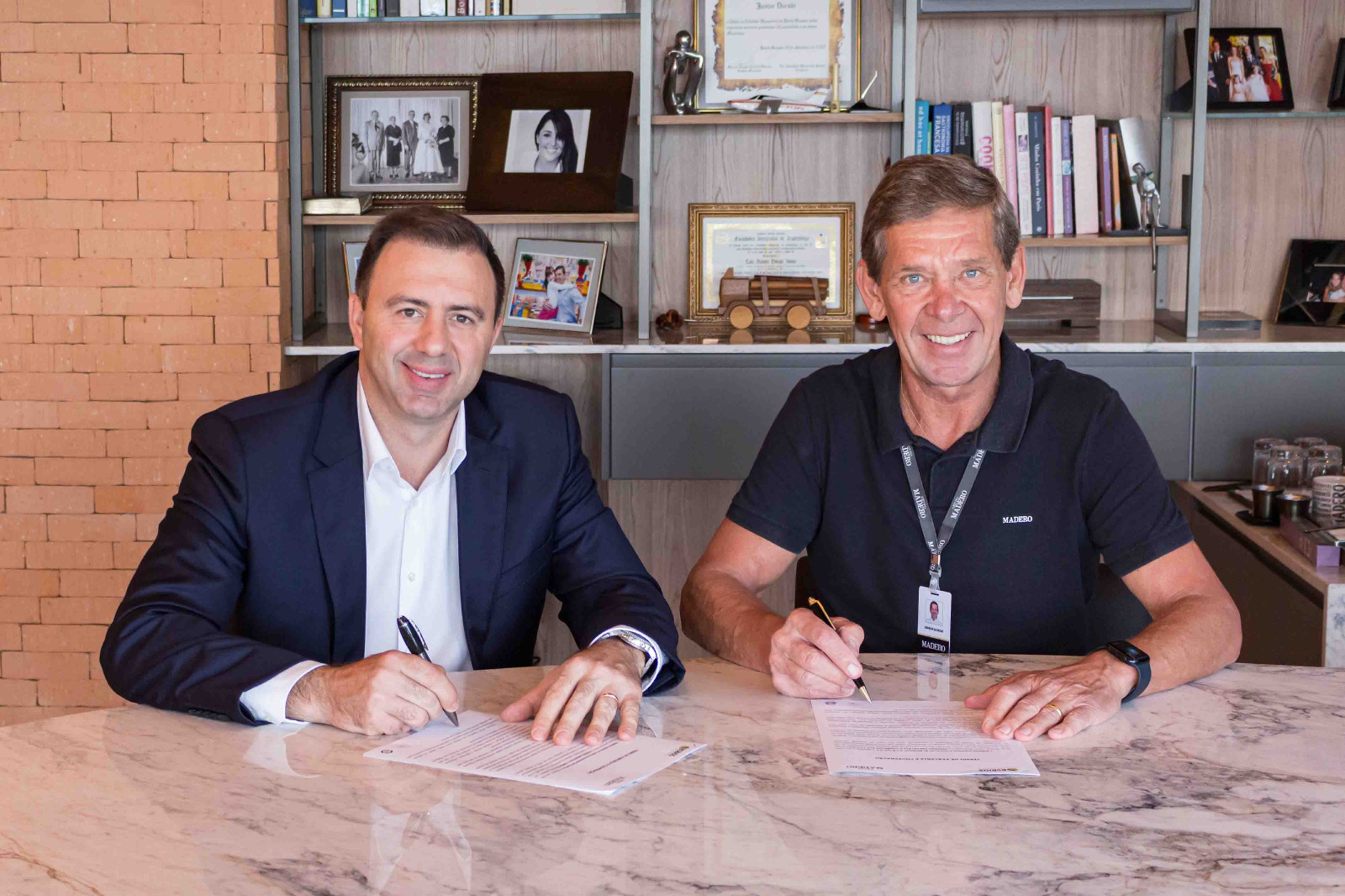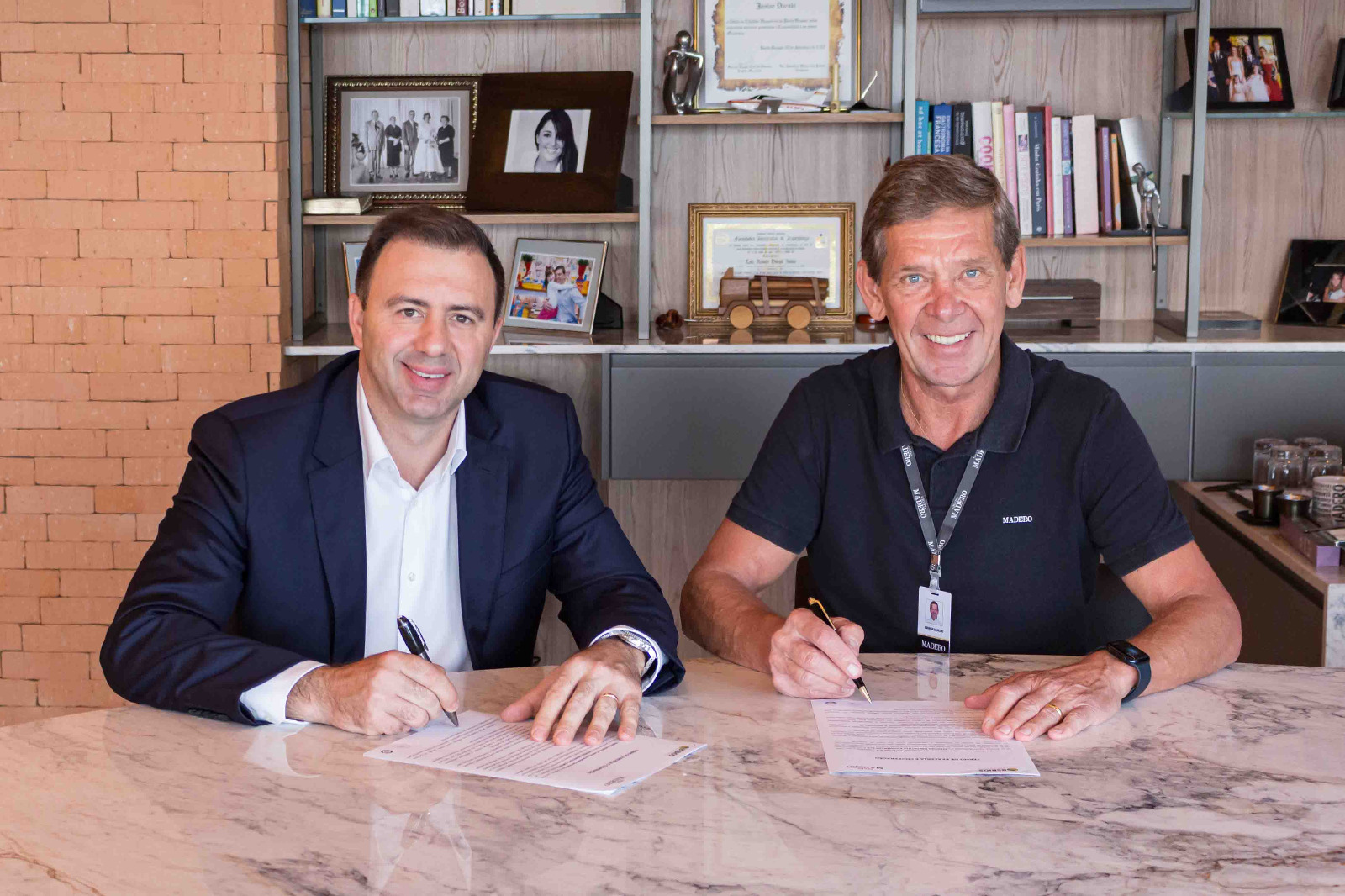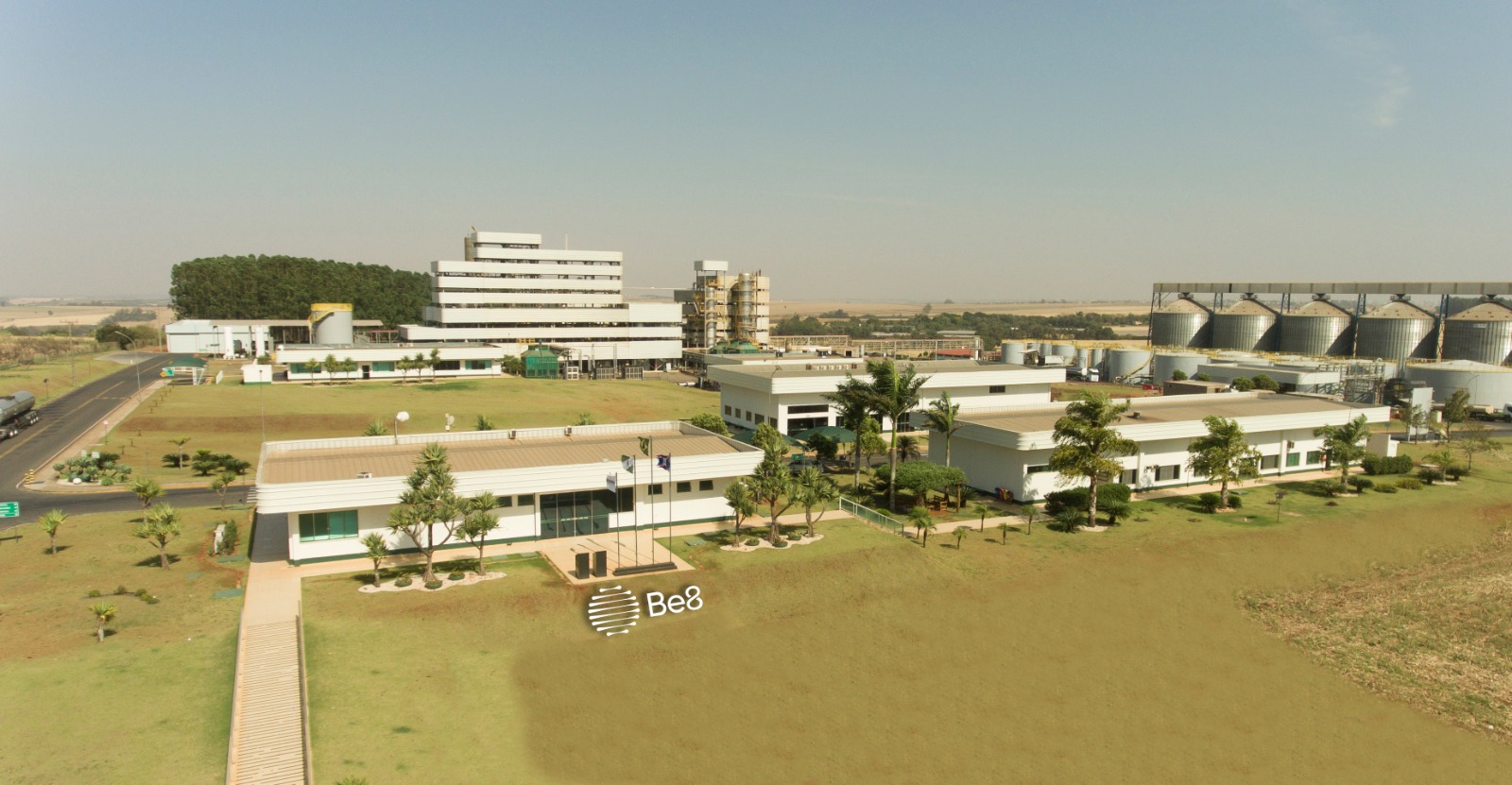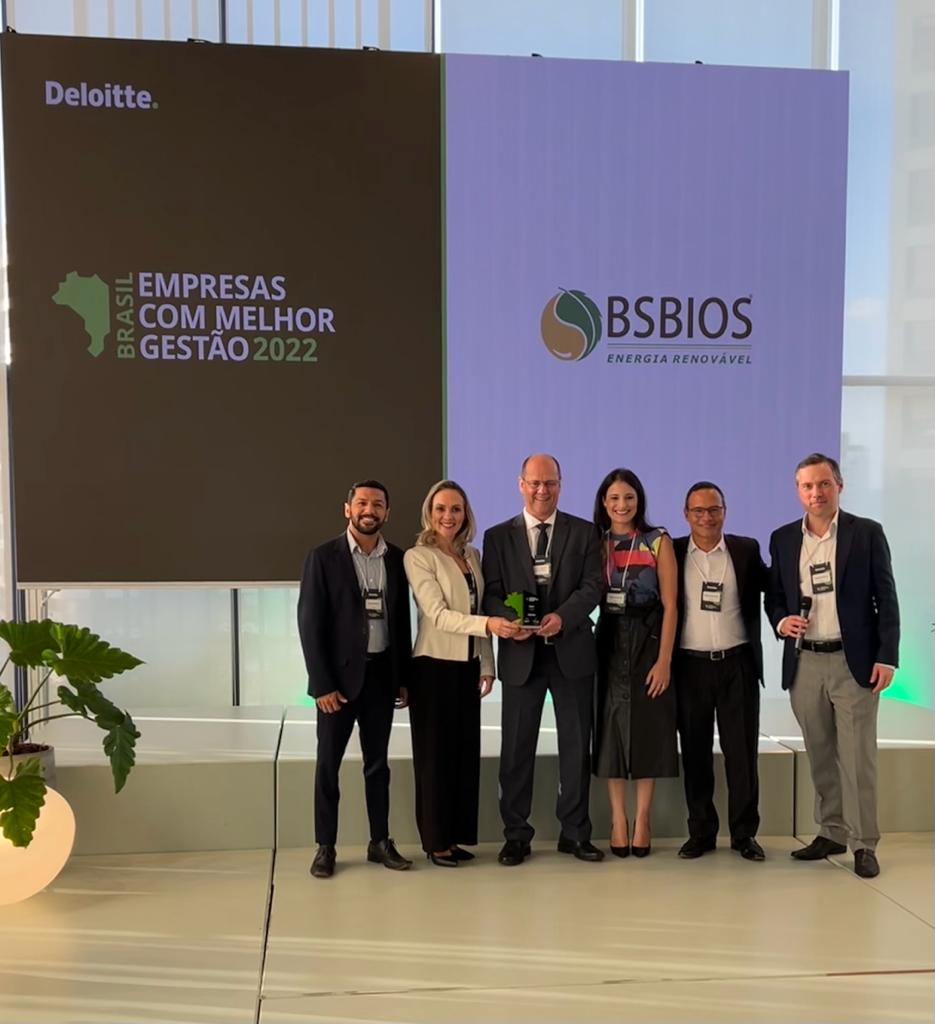Partnership between BSBIOS and the Madero Group transforms used cooking oil into clean energy
In a circular economy model, the residual raw material of 270 restaurants will be destined for biodiesel production
 BSBIOS and the Madero Group signed, on Wednesday (15/02), in Curitiba (PR), a contract for the purchase and sale of Used Cooking Oil (UCO) from the kitchens of the Madero Group's restaurants. The residual raw material will be destined to produce biodiesel, configuring a Circular Economy model – when sustainable development takes place through business models that prioritize recyclable and renewable inputs.
BSBIOS and the Madero Group signed, on Wednesday (15/02), in Curitiba (PR), a contract for the purchase and sale of Used Cooking Oil (UCO) from the kitchens of the Madero Group's restaurants. The residual raw material will be destined to produce biodiesel, configuring a Circular Economy model – when sustainable development takes place through business models that prioritize recyclable and renewable inputs.
The recall involves 270 Madero Group restaurants, including Madero Container, Madero Steak House and Jeronimo Burger, across the country. The contract provides for the collection of 55,000 liters of UCO per month. The waste is carefully reserved, complying with the requirements of the current regulation, and is collected by the same vehicles that supply the restaurants with supplies, thus forming the Reverse Logistics process. The oil used returns to the Central Kitchen of Madero, in Ponta Grossa (PR), from where it goes to the BSBIOS unit in Marialva (PR).
"The waste from industrial cooking oil is a potentially polluting item when disposed of improperly, and alternatives are needed to enable its recycling," said Junior Durski, CEO of the Madero Group. "Therefore, the partnership with BSBIOS in this reverse logistics process is important for us to promote not only environmental balance, but also economic, a policy of the Madero Group that is fully in line with good ESG practices."
Sustainable development
"This is another measure that reinforces the purpose of BSBIOS to participate in the sustainable development of the planet through agribusiness and renewable energies, in addition to having sustainability as one of its values, understanding the urgency and importance of preserving the planet", analyzes Erasmo Carlos Battistella, president of BSBIOS.
Last year, BSBIOS announced its Sustainability Manifesto, in which it places special emphasis on the value chain and nature, valuing responsible sourcing and biodiversity conservation, enhancing circularity and cleaner production.
Decarbonization efficiency
"The use of UCO is a doubly sustainable alternative, as it reduces the improper disposal of waste and contributes to the production of a proven renewable fuel," explains Battistella. As UCO is considered a residual raw material in the production of biodiesel, no greenhouse gas (GHG) emissions are attributed to its generation, making it more efficient in the decarbonization process.
In Brazil, the UCO is 2.25% of the raw material used for biodiesel production (according to the National Agency of Petroleum, Natural Gas and Biofuels - ANP), but in the Southeast, this share is about 20%. BSBIOS intends to expand its use, which represented 4% of the raw material used in 2022 for the production of biodiesel.
At the end of last year, Santander Brasil granted R$ 40 million in financing, linked to ESG commitments to BSBIOS. Among the counterparts agreed for the transaction are the expansion of the social project of collection of UCO [,] in Passo Fundo, Rio Grande do Sul. At the BSBIOS plant in Switzerland, as required by local legislation, the plant uses exclusively the UCO of canola and, to a lesser extent, sunflower, as a raw material for the production of biodiesel.
Madero Group
The Madero Group was founded in 2005 and currently has one of the largest restaurant chains in the country, with a portfolio of about 270 multi-brand restaurants, built on a vertically integrated production, distribution and logistics platform. It maintains rigorous production processes, prioritizing organic and preservative-free foods, raising the quality standard of what is served to approximately 3 million customers per month.
BSBIOS
BSBIOS is a Brazilian company founded in 2005 and a Brazilian leader in the production of biodiesel. In addition to two production units in Brazil, one in Passo Fundo (RS) and another in Marialva (PR), the group also has a production unit in Switzerland and conducts the construction project of the Omega Green biorefinery in Paraguay, which will produce advanced biofuels (HVO – green diesel, SAF – aviation biokerosene and green naphtha). In the South American country, the company has just announced the acquisition of the La Paloma Industrial Complex, a company located in La Paloma del Espíritu Santo, in the Department of Canindeyú. The unit will be identified as BSBIOS La Paloma.
The company also announced, in 2022, the investment in the first large-scale ethanol plant in Rio Grande do Sul. Located in Passo Fundo (RS), the new unit will produce, when fully installed, 220 million liters of ethanol (anhydrous or hydrated) and 155 million tons per year of bran for the animal protein chain.




